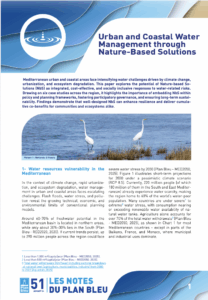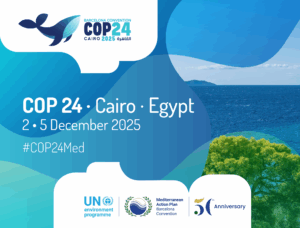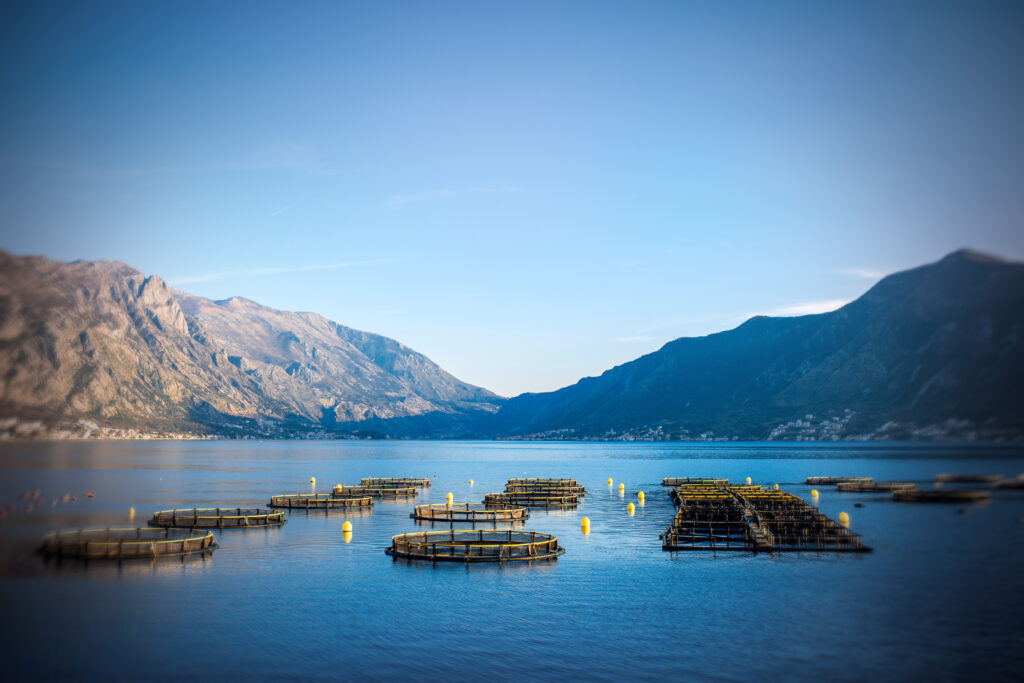Aquaculture is among the fastest growing food production systems in the world. According to the latest global aquaculture statistics compiled by the Food and Agriculture Organization (FAO), global total production reached a new historical record of 114.5 million tonnes live weight in 2018, with a total value of USD 263.6 billion. Total production is made up of 82.1 million tonnes of aquatic animals (USD 250.1 billion), 32.4 million tonnes of aquatic algae (USD 13.3 billion) and 26,000 tonnes of ornamental seashells and pearls (USD 179.000) (Figure 1).
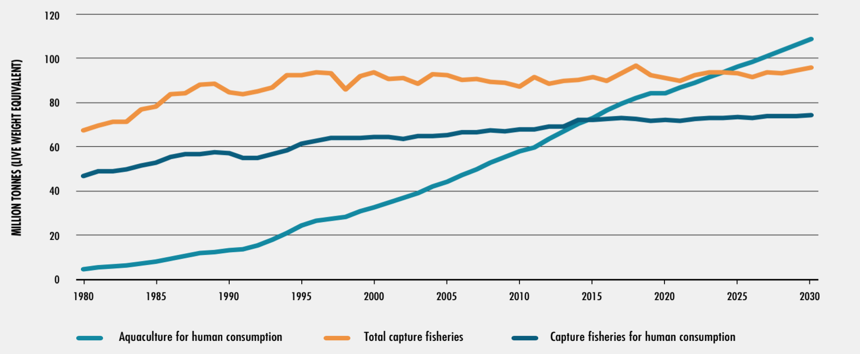
World Global capture fisheries and aquaculture production, 1980-2030 (Source: FAO)
In the Mediterranean region, aquaculture plays a major role in economic growth and food security while reducing dependence on overexploited wild stocks. Aquaculture has developed at a sustained pace over the past 20 years, with an average annual growth rate of 5% between 1994 and 2015. Total production of fish and shellfish from aquaculture amounts to approximately 2.4 million tonnes. (Figure 2). (Figure 2).
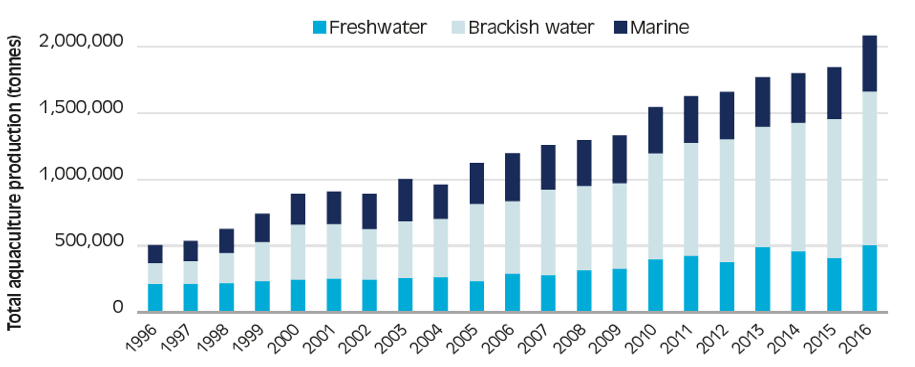
Figure 2: Production aquacole dans les pays méditerranéens par type de milieu. All species and environments are included. La zone statistique de l’Atlantique est exclue. (Source: produite par CGPM d’après les données FishStat et SIPAM, 2019)
This growth poses numerous and complex sustainability challenges, and explains why major strategic initiatives of regional cooperation developed over the last few years have addressed the issue of sustainable aquaculture. The last communications of the European Commission, along with the establishment of the new European Maritime, Fisheries and Aquaculture Fund (EMFAF) for the programming period 2021-2027 demonstrates the willingness to move towards sustainable aquaculture at EU and, as a consequence, at Mediterranean level.
Plan Bleu’s activities: Elaboration of a Roadmap for the sustainable development of the aquaculture sector in the Mediterranean
Within the framework of the 2020-2021 UNEP/MAP work programme adopted at the COP21 of the Barcelona Convention, Plan Bleu has been entrusted with the task of developing a roadmap for the sustainable development of the aquaculture sector in the Mediterranean. Plan Bleu has set up a participatory process to develop this roadmap with the establishment of a multi-stakeholder group of about one hundred representatives of the private sector, local, national and regional authorities, NGOs, researchers and international organizations working in the sector. Two Interreg Med project communities, of which Plan Bleu is a part, are also partners of this initiative: blue growth communityand the Mediterranean community for the protection of biodiversity. The process of developing the roadmap is co-financed by the Mediterranean Trust Fund, the European Regional Development Fund and the French Development Agency.
Objective
Based on a long-term vision shared at the regional level for aquaculture in the Mediterranean (coastal and offshore), this roadmap aims to foster the transition towards sustainability, increase visibility and operationalize innovative approaches, methods, tools and practices in order to address the priority challenges posed by the expansion of marine aquaculture in the Mediterranean.
Main steps
- November 2020 : Two workshops organized in partnership with FAO/GFCM, WestMed and IUCN Med
–agree on the main governance / environmental / economic / social challenges posed by the aquaculture sector in the Mediterranean;
-identify for each challenge innovative approaches / tools / technologies / practices as promising solutions.
-Establishment of a working group (approximately 150 people).
-Identification of nine priority challenges under the 4 pillars (governance, environment, economic, social) - November 2020 – January 2021:Elaboration of a first document and definition of a common vision for a sustainable aquaculture in the Mediterranean.
- January 2021: First meeting of the working groupandfeedback on the first document.
- February 2021 – May 2021: Consolidation of the Roadmap.
- May 2021:Second meeting with the working group and presentation of the consolidated version.
- September – November 2021:Finalization of the roadmap and communication of key recommendations
- December 2021:Presentation of the roadmap at the COP22 of the Barcelona Convention in Antalya, Türkiye.
The final document (English and French versions) is available here.
Next steps (2022-2023):
Plan Bleu is currently developing two projects for a concrete implementation of some recommendations/innovations of the roadmap in the southern Mediterranean countries (e.g. Morocco, Tunisia) and thus promote knowledge transfer between the northern and southern shores of the Mediterranean. If you wish to be a partner of this project(s), do not hesitate to contact Dr. Céline Dubreuil, Director of Programs at Plan Bleu: [email protected]






